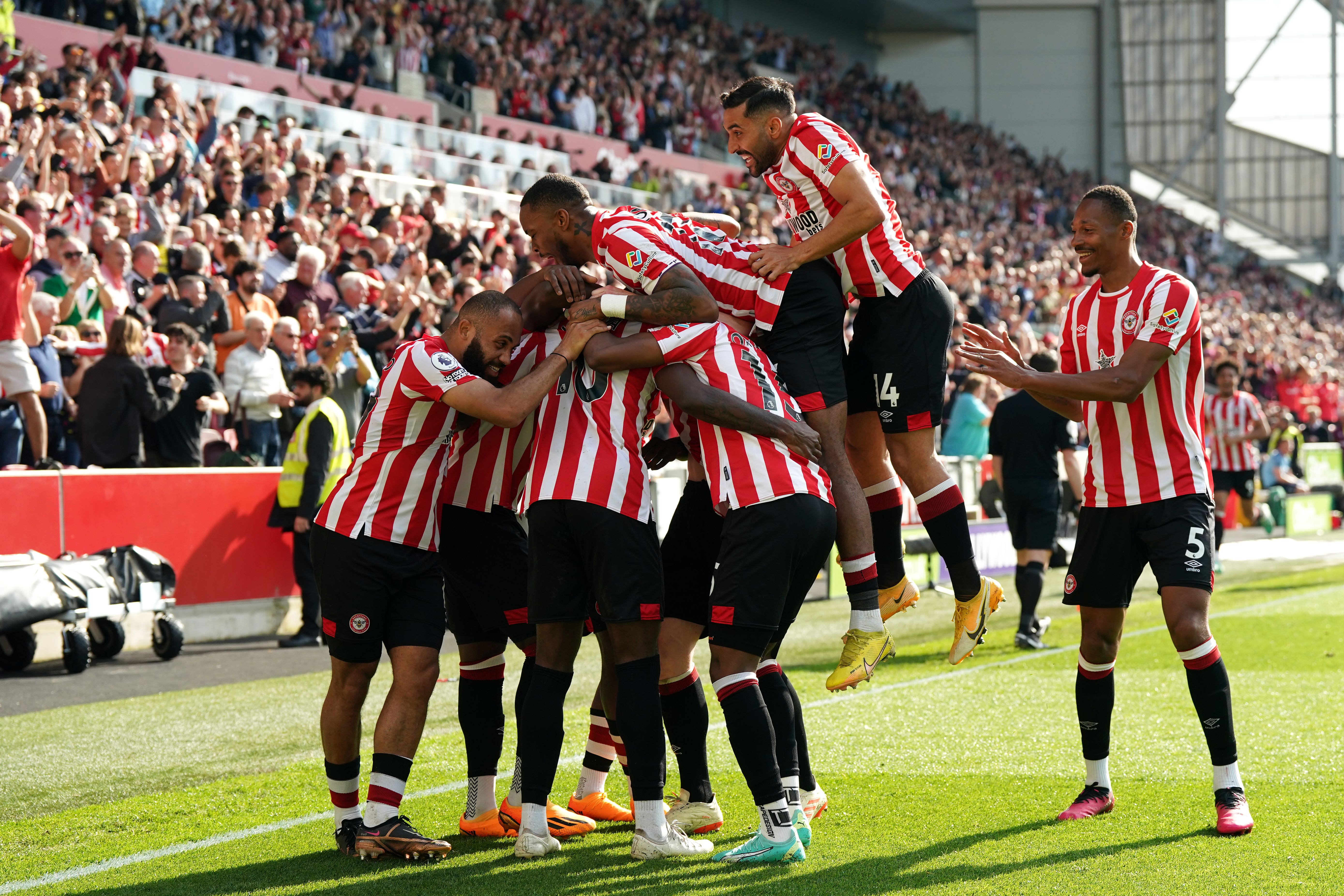Brentford only Premier League club to make top 10 of sustainability report
League Two club AFC Wimbledon came top of the ‘Fair Game Index’ while top-flight Nottingham Forest had the lowest rating of all.

Brentford are the only Premier League team to have made the top 10 in a report assessing the country’s most sustainably-run clubs in the top four professional divisions.
The Bees are the sole top-flight representatives among the best performers in the Fair Game Index published on Monday.
This Index looks at all 92 clubs who were in the Premier League and the EFL last season, rating the performance of each on a weighted scoring system based on financial sustainability, governance, fan engagement and equality standards.
Fair Game, a group of clubs and industry experts which campaigns for football reform, believes clubs’ performance against sustainability criteria should be used to determine how the bulk of the centrally-distributed broadcast revenue is allocated.
League Two club AFC Wimbledon finished top in the Index. The Dons scored well across the board, underpinned by a firm commitment to never put the club’s financial status at risk. The club aim to always stay well below UEFA’s recommended wage-to-turnover ratio of 70 per cent, nurture homegrown talent and engage with the local community.
Newly promoted League One team Carlisle are second, with Cambridge in third. No club who featured in the Championship last season made the top 10, with fourth-placed Plymouth promoted into the second tier at the end of last season.
Brentford finished in 10th overall.
Cambridge came top on governance in the Index, Lincoln led the way on equality standards and Exeter were first on fan engagement.
Three of the six lowest-ranked clubs in the Index are Championship sides – Cardiff, Middlesbrough and League One play-off winners Sheffield Wednesday, while Premier League side Nottingham Forest had the lowest rating of all.
Despite Forest being bottom, Premier League clubs had the highest average Index score – 50.0 – driven primarily by revenue being such a big factor in the financial sustainability, but were the worst performing on average for fan engagement.
Championship clubs had the lowest average Index score – 38.1 – with clubs often spending beyond their means to either chase the Premier League dream or avoid the drop-off in income that follows relegation to League One.
Fair Game has lobbied the football authorities to make clubs’ sustainability central to how much funding they receive, as the Premier League, EFL and the Football Association continue their talks on a ‘New Deal For Football’.
Should they be unable to reach an agreement, the Government has said the new independent regulator for English football (IREF) should have backstop powers to impose a settlement via arbitration.
Fair Game, which has consistently called for independent regulation, is also lobbying to ensure any backstop settlement includes consideration of how sustainable clubs are.
Currently Fair Game says 12 per cent of the Premier League’s annual television income is distributed to the EFL and the wider pyramid.
It says this should increase to 25 per cent, and also favours the introduction of a 10 per cent transfer levy on deals involving top-flight clubs, and deals between top-flight clubs and overseas teams.
The fan-led review, published in 2021, called for a levy to be brought in but the proposal was not included in the Government’s white paper on football governance published earlier this year.
Fair Game has also launched a tool allowing users to calculate how much clubs would earn based on their Fair Game Index score with the distribution percentages as they are now, and how that would change if the percentage increased and a transfer levy was introduced.
Fair Game found 92 per cent of clubs outside the Premier League would be better off under its distribution model than the one currently in operation.
Fair Game’s chief executive Niall Couper added: “The Fair Game Index paints a realistic picture of what our game could look like, a future where football chooses to reward well-run clubs.
“Fair Game are working hard with communities, experts, football interest groups, fans, clubs and politicians to transform this picture into reality.
“For the first time, the building blocks are in place.”
Shadow Sports Minister Jeff Smith said: “Ahead of another football season, we still have no financial settlement for English football, meaning more clubs could face the brink.
“We urgently need a football regulator to look at clubs’ sustainability, with the backstop powers to resolve football funding, but despite warnings for years the Government has dragged their feet on setting it up.
“The Government should bring forward a football bill as soon as possible.”
Bookmark popover
Removed from bookmarks